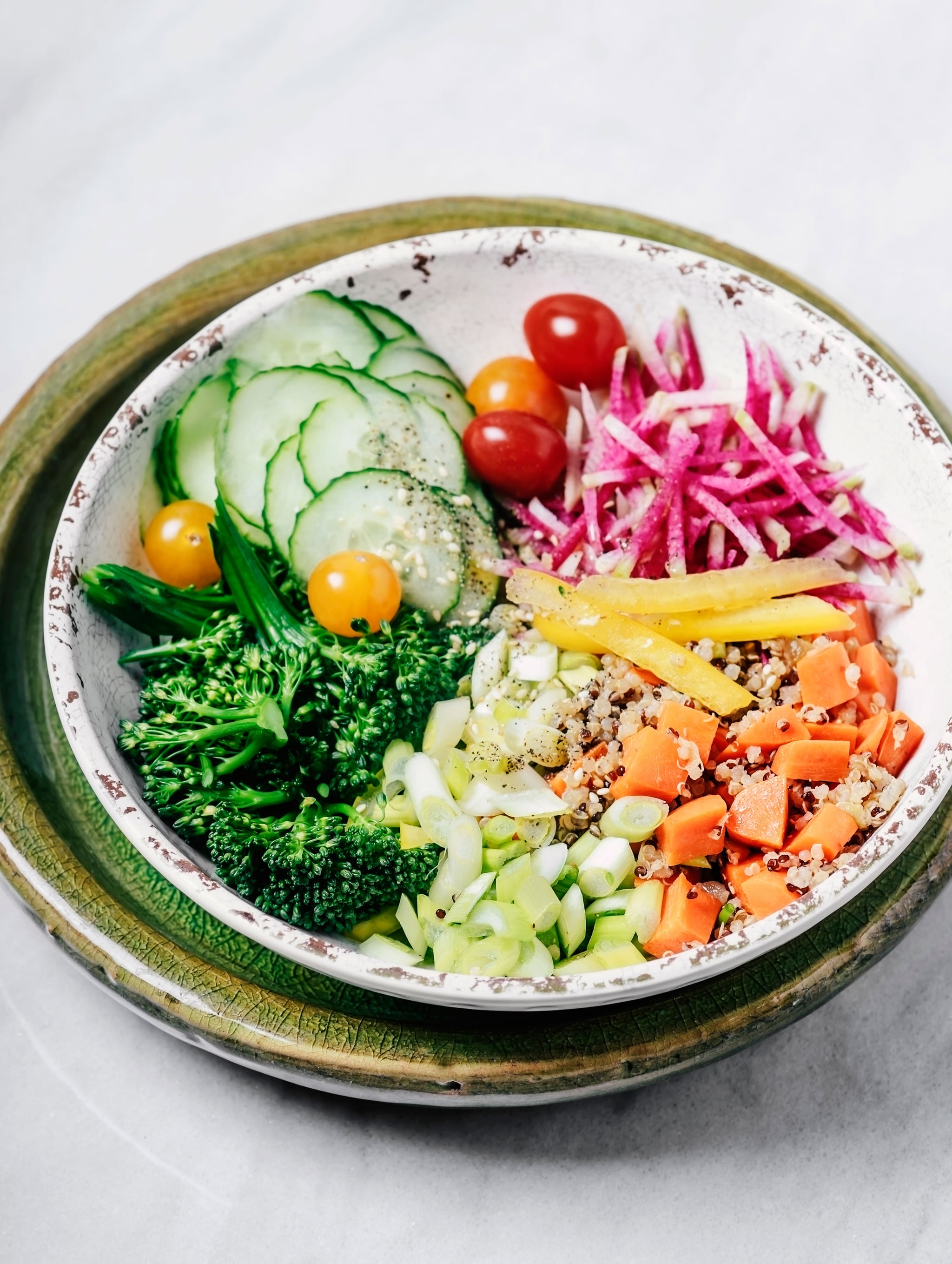Monday, November 25, 2019
Tuesday, November 19, 2019
I Stopped Eating 3 Hours Before Bed, and Here's How It's Completely Changed My Life
Summer was amazing because of . . . food! Aside from all the fresh veggies in my garden, I was enjoying lots of neighborhood barbecues, goodies at the farmers market, late-night trips to the local ice cream shop, and s'mores by the campfire. I got in the habit of eating past 9 p.m., right before I got into bed. Before the Summer, I rarely ate past 7 p.m., so it was a big difference.
Eating more foods I wasn't used to and eating up until I went to bed added a little extra Summer fluff, but what I really noticed was that I was sleeping like crap. Eating so close to bedtime left me feeling bloated, and I'd often wake up several times a night because of stomach pains.
What Doctors Say About Sleep and Eating
Dr. Rizwana Sultana, MD, said "the last big meal of the day should be at least two to three hours before going to bed." Before the Summer, I practiced intermittent fasting, eating from noon or 1 p.m. until 7 p.m. and was in bed by 9 p.m.
What I Did
In the Summer, I became more relaxed with my intermittent fasting schedule. I was used to eating in a six- or seven-hour window during the school year, but once I started eating later during the Summer, I was actually doing 15:9 and eating from noon until 9 p.m. Something needed to change because I was feeling terrible and not like myself.
I thought I'd do a little experiment and see what would happen if I stopped eating three hours before bed, as recommended by Dr. Sultana. Since I go to CrossFit, run, or do yoga early in the morning, I'm in bed by 9 p.m., which meant I needed to stop eating by 6 p.m. every night. I did this for the entire month of September.
I also went back to eating in a six- or seven-hour window, since that's the IF schedule I preferred. I'd eat lunch around noon, have a snack around 3 p.m., and finish dinner by 6 p.m. It was a little hard at first to have that 6 p.m. cutoff, but it made me realize how much I was unnecessarily eating after dinner while cleaning the kitchen and making the kids' lunches. Sometimes my workouts were so intense that I'd be hungry before noon so I'd eat at 11 a.m., but I was strict about that 6 p.m. cutoff.
Did Not Eating Three Hours Before Bed Help Me Sleep Better?
Yes! After that very first day, I had the most rested night of sleep I had had in months. I forgot how amazing it feels to get a full night of good sleep. After that first week, I was dealing with hardly any pain or tummy issues while sleeping, and I also woke up with less bloat.
Did Not Eating Three Hours Before Bed Affect My Morning Workouts?
Getting a good night's sleep also helped me perform better during my morning workouts. I obviously had more energy (duh!), but I also noticed that I felt more confident and happy. When your stomach bothers you throughout the night and you wake up bloated, you don't really feel 100 percent. I felt like a different person this past month!
Did Not Eating Three Hours Before Bed Affect What I Ate?
What you eat before bed can definitely affect how you sleep, explained Mattress Firm's sleep health expert, Dr. Sujay Kansagra, MD. He said that fatty or fried foods are best to avoid late at night since these foods tend to stimulate the production of acid in the stomach, which can spill into your esophagus and cause heartburn that will disrupt your normal sleep cycle.
I found high-sugar foods had that effect on me; those were the foods I was reaching for in the Summer nights. Having that 6 p.m. cutoff naturally helped me not reach for as much crap! It helped me get back into a healthy eating pattern, not only when I was eating but also what I was eating.
Will I Stick With It?
I feel so much better eating this way that I'm naturally inspired to keep it up. During the week, this schedule feels totally easy to stick to. On the weekends I like to have a little more flexibility since I go to bed an hour or two later, which means I may extend my eating window and stop eating around 7 or 8 p.m. — it just depends on how I feel. But I still try to stop eating three hours before bed because it just makes such a huge difference in how I sleep and how I feel the next day.
sorce : popsuger
Monday, November 18, 2019
We Ask The Experts How Much Daily Fiber Is Needed to Lose Weight, the Answer Is Pretty Interesting
While getting in your veggies is a great way to keep calories low if you're trying to lose weight, they're also jam-packed with fiber. But you don't have to just eat veggies all day long in order to lose weight. We asked a dietitian, and here's what she said about how much fiber you need a day to lose weight.
Why is Fiber Good For Weight Loss?
Registered dietitian nutritionist and NASM-certified personal trainer Whitney English Tabaie, MS, said fiber slows digestion and helps you feel fuller longer, which may result in less overeating or snacking between meals, which can lead to weight loss. Fiber also slows the release of glucose into the bloodstream, which helps to maintain energy levels and prevent spikes and crashes.
How Much Fiber Should I Eat to Lose Weight?
The recommended daily amount (RDA) of fiber is 25 grams a day for women and 37 grams for men, Whitney said, but the average American probably only consumes about 15 grams of fiber per day. "I recommend people aim to consume at least the RDA, but really, when the fiber is coming from whole foods versus supplements, the more, the better. Some hunter-gatherer societies consume an upwards of 100 grams a day!" She added to just make sure to consume plenty of water to aid in fiber digestion.
Don't just start eating a ton of fiber if you haven't been! Whitney warns that a drastic increase in fiber, especially coupled with low water intake, could cause digestive distress and constipation. "My recommendation is to increase fiber intake slowly, drink plenty of water, and aim to get your fiber from whole foods versus supplements," Whitney said.
What Are the Best Sources of Fiber?
Great sources of fiber include whole grains, legumes, nuts, seeds, vegetables, and fruit. Here are some ways you can increase your fiber intake:
- Spread toast with nut butter or avocado instead of butter.
- Add beans to smoothies, puree into soups, and add to mashed potatoes.
- Sprinkle hemp seeds on your salad.
- Use a flax egg instead of a regular egg when baking.
- Dip carrots or pepper strips in guacamole instead of chips.
- Add chia seeds to your overnight oats.
- Bake with whole wheat flour instead of all-purpose.
- Explore different pasta alternatives such as chickpea pasta.
sorce : popsuger
Subscribe to:
Posts (Atom)
-
Say goodbye to calorie counting. Try these unusual diet strategies and watch the pounds fall away. 1. Snap your food Takin...
-
The best way to lose belly fat is with cardio and healthy eating habits. ‘If you have excessive fat around your belly, this su...
-
Tired of the same ol’ workout? These expert-approved fitness trends are sure to shake up your new year Fusion Classes A swarm of new...

